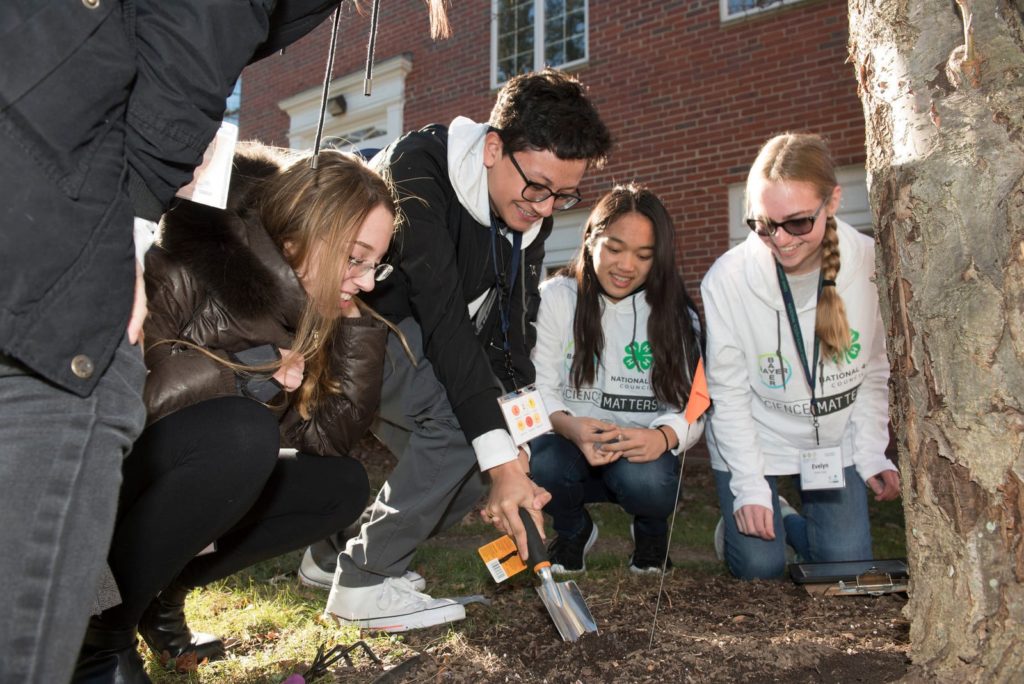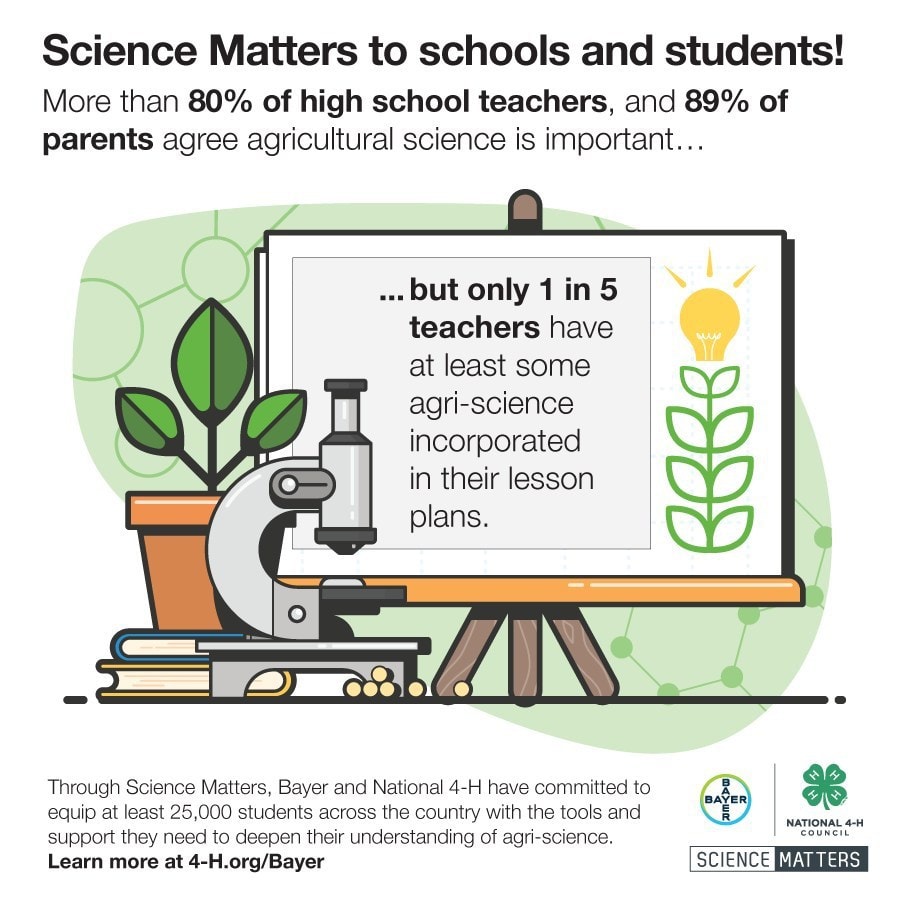Statistics Show 80 Percent of High School Science Teachers Believe Agri-Science Is Important, but Only 22 Percent Teach It
Bayer and National 4-H Council “Science Matters” Initiative Seeks to Boost Education and Interest in Agri-Science
RESEARCH TRIANGLE PARK, N.C., March 20, 2018 (PRNewswire) | As the agriculture and STEM (Science, Technology, Engineering and Math) communities celebrate National Ag Day, a new study released today found that more than 80 percent of high school science teachers surveyed think agricultural science is important, but only 22 percent say it makes up at least some of their lesson plans.
Sponsored by Bayer in collaboration with National 4-H Council, the survey found that fewer than half of the teachers surveyed felt qualified to teach agri-science. Some 48 percent believe there is less emphasis placed on learning this particular STEM industry today as compared to 15 years ago.
“Food security, reliable access to safe and affordable food, is one of the most significant challenges of our time with most experts predicting that by 2050, population demands from nearly 10 billion people will require a 60 percent increase in global food production,” said Jennifer Sirangelo, president and CEO of National 4-H Council. “Science matters now more than ever. We need to create educational opportunities that inspire a new generation of leaders willing to tackle this challenge.”

Bayer and National 4-H Council also conducted a survey of more than 1,000 parents of high school students. The survey found that 86 percent of parents agree it’s important for the country’s future success to encourage pursuit of careers in the agricultural industries, and 68 percent said the industry provides exciting career opportunities. However, nearly 70 percent of respondents do not believe their children will pursue a career in agri-science, even though data from the United States Department of Agriculture shows tens of thousands of jobs each year in agriculture go unfilled by qualified candidates.
According to Dr. Mae Jemison, the first African-American woman to go to space and Chief Ambassador for Bayer’s Making Science Make Sense initiative, the data for agriscience parallels an overall conundrum in science education and STEM careers. “When it comes to STEM education, studies have consistently shown our nation’s youth frequently do not get the exposure to or experiences required to be successful nor are our expectations for them high enough,” said Dr. Jemison. “If we are to meet the challenges facing humanity’s future on this planet, such as meeting the nutrition and health needs of an ever-growing population, we need new generations of STEM-literate leaders seeking creative and innovative solutions.”
By launching Science Matters in August 2017, Bayer and National 4-H Council have committed to equip at least 25,000 students in urban, suburban and rural areas alike with the tools and support they need to deepen their understanding of science. The multifaceted program includes:
- Hands-on curricula provided by 4-H to its network of local club leaders who work with kids in communities across America to demonstrate why science matters to all of us;
- Creating a nationwide photo contest to heighten young people’s awareness of the role science plays in their everyday lives;
- Providing scholarships for hundreds of young people and leaders to attend the 4-H National Youth Summit on Agri-Science, which exposes young people to the variety of careers in modern agriculture through more than 30 hours of hands-on learning and problem-solving experience; and,
- Engaging with 4-H clubs across the U.S. through community grants and local volunteerism to enhace the STEM education experience.
For more information on Science Matters, visit 4-H.org/Bayer.
Read the rest of the press release here: https://www.prnewswire.com/news-releases/are-we-preparing-the-next-generation-for-tomorrows-global-challenges-new-study-suggests-we-have-work-to-do-300616460.html
